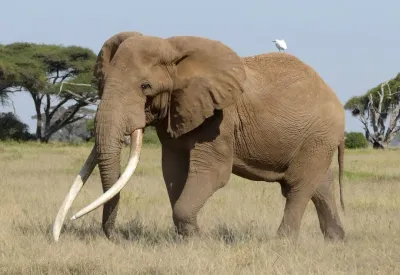
For two months I have been sleeping on top of my bedcover. I have not realised the need to coil under the bed sheets or blanket as it had always been. The weather is obnoxiously hot and everyone is busy complaining. It is pretty hot and the merciless sun rays hit the earth is vengeance. Traditionalists say that the gods are annoyed. Not even supplications being made in church and mosques can cajole the clouds to cry rain. Dust is everywhere and people sweat like desert lizards. Does this mean anything to us?
Today communities are experiencing unprecedented changes in weather patterns. Weather is no longer predictable. Even those chaps at the metrological department are overwhelmed. They predict that it will be sunny the following day and instead it rains cats and dogs. In Uganda, economy, and communities. W e can help slow it down, but we must take action now.
A change in usual timing of rain or temperature can affect when plants bloom and set fruit, when insects hatch or when streams are their fullest. This can affect historically synchronised pollination of crops, food for migrating birds, spawning of fish, water supplies for drinking, irrigation, forest, health, and more. It is soon determining the sex of the babies we produce- scientist should do research on this.
We human beings are illogical. Sometimes we become paranoid and devoid of rational thinking. We kill all the caterpillars and later on complain that we no longer see butterflies. All across the world people are taking action because climate change has serious impacts locally and globally. The more we delay to take action the more damage we are likely to cause. The onus to rectify these aberrations rests squarely on the humans, who have also caused them.
The beauty of the notion that humanity owes ecology an apology does not lie in the way the statement rhymes; it is basically the obvious reminder that man has abused the environment that the creator made for him and therefore must repent and move towards redemption. Many times people ask for the causes of climate change and hence global warming. But there is new and stronger evidence that most of the warming over the years is due to human activities.
In its 2007 report to the United Nations, the Intergovernmental Panel on Climate Change concluded that it is more than 90 percent likely that the accelerated warming of the past 50-60 years is due to human contributions. There is increased level of heat trapping gases (green house gases) like carbon dioxide in the atmosphere. These gases come as a result of burning fossil fuels. We use coal. Oil, and natural gas to generate electricity, heat our homes, power our factories and run our cars.
We recklessly cut down trees for timber and fire wood, burn bushes to do agriculture, reclaim swamps, do landfills and septic or sewer systems, excavation of land during mining and so on. Changing land use patterns also immensely contribute to increased amount of green house gases. Trees and other plants use carbon dioxide and give off oxygen. When trees are cut down for development, agriculture and other purposes, they are no longer available to take the carbon dioxide out of the air, actually release carbon dioxide as they decay or burn.
The inter governmental panel on Climate change (IPCC) forecasted that 2020 between 75 and 250 million people in Africa are projected to be exposed to increased water stress. Yields from rain-fed agriculture could be reduced by up to 50 percent in some regions by that time. This means that agricultural production including access to food may be severely compromised.
In Asia fresh water availability is projected to decrease by 2050. Coastal areas will be at risk due to increased flooding and death rate associated with floods and drought in the region. Europe is likely to have creased risk of inland flash floods, more frequent coastal flooding and increased erosion from storms and sea level rise. There will be extensive species losses, reduced snow cover and hence winter tourism.
To fight global warming and its effects there is need to work in agricultural, administrative, manufacturing and research activities that contribute directly to preserving or restoring environmental quality. We have to protect ecosystems and biodiversity, reduce energy and water consumption, decarbonise the economy and minimise pollution. Otherwise we are about to destroy our own planet.














Isa Senkumba
Isa Senkumba is a social critic
Leave a Comment
Your email address will not be published.